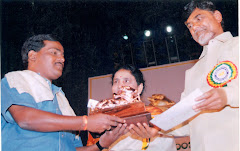A drama film is a film that depends mostly on in-depth character development, interaction, and highly emotional themes. In a good drama film, the audience are able to experience what other characters are feeling and identify with someone.
This genre could be especially useful by challenging the ignorance from stereotypes or any other overly simplistic generalizations by bringing it down to a more personal and complex level. As well, such movies could also be therapeutic by showing how characters cope with their problems, challenges, or issues, and to the extent the viewer can identify with the characters with his or her own world.
This film genre can be contrasted with an action film which relies on fast-paced action and develops characters sparsely.
Sub-genres
Dramatic Films include a very large spectrum of films. Because of the large number of drama films these movies have been sub-categorized:
War drama - Character development set in War theme.
Legal drama (Courtroom drama) - Character development in fictional court cases.
Erotic drama - Character development focused on sexuality and sexual encounters.
Sports drama - Character development based on sports events.
Crime drama - Character development based on themes such as the Police or the Mafia.
Historical drama - Films which focus on historical pasts.
Biography film - Films which focus on true stories of real people.
All films genres can include dramatic elements, such as comedies, action films, and horror movies, but typically films considered drama films focus mainly on the drama of the main issue.
Early films
From the silent era to the 1950’s Drama’s were tools to teach the audience. Films like The Grapes of Wrath (1940) show the effects of the depression. Citizen Kane (1941) was said by Orson Welles to not be a biography of William Randolph Hearst, but a composite of many people from that era.
In the 1950s, began a rise in well-known dramatic actors. Glenn Ford, James Dean, Bette Davis, and Marilyn Monroe were notable dramatic actors. Dramatic Films focused on character relationships and development. All About Eve (1950) focused on women, and their relationship with men. Rebel Without a Cause (1955) showcased teenage angst. Films like 12 Angry Men (1957) and Anatomy of a Murder (1959) show the inner workings of a courtroom. The 1950s was the debut of Akira Kurosawa, and films such as Rashomon (1950) and Seven Samurai (1954).
The 1960s brought politically driven drama’s focusing on war, such as Judgment at Nuremberg (1961), and The Manchurian Candidate (1962). Sports dramas became inspiration such as The Hustler (1961) and Downhill Racer (1969).
During the 1970s modern dramatic directors made some of their first films. Francis Ford Coppola directed The Godfather (1972). Martin Scorsese directed Taxi Driver (1976), Mean Streets (1973), and musical drama New York, New York (1977). Sylvester Stallone created one of the most successful sports drama franchises Rocky (1976) and also directed the sequel Rocky II (1979). Also in sports drama was films focused on the struggle of athletes such as Brion’s song(1970), and The Longest Yard (1974). War films, and specifically WWII films were produced, giving the most realistic adaptation of the war seen in film at that time. Tora! Tora! Tora! (1970), Patton (1970), and Apocalypse Now (1979) all show the trials and hardships of war, are still considered classic war films.
In the 1980s dramatic film put emphasis on highly emotional themes. Do the Right Thing (1989),Spike lee’s debut film, and The Color Purple (1985) were full character studies of African American culture and history. War drama’s again played a big part as Platoon (1986) showed the horrors of Vietnam. Das Boot (1981) focused on the German viewpoint of WWII. Drama, with a science fiction edge was a theme when Steven Spielberg directed E.T. the Extra-Terrestrial (1982), and Ridley Scott directed Blade Runner (1982).
During the 1990’s to Drama was put into epic proportion when films like Goodfellas (1990) came out. The Shawshank Redemption (1994) had strong themes of hope, as did Schindler’s List (1993). Dramas also took a turn with thrillers with, Fight Club (1999), American Beauty (1999), and Leon (1994). Race relationships were a theme in American History X (1998), and the AIDs epidemic, and discrimination was focus of Philadelphia (1993). Comedy-drama was featured with films like Jerry Maguire (1996) and Barton Fink (1991).
In the 2000s, biopics such as Ali (2001), Frida (2002), Ray (2004), and Walk the Line (2005) have become popular among film makers, particularly those seeking critical acclaim such as Academy Awards. Gladiator (2000) is an epic dramatic film, along with Master and Commander (2003). The Gulf War was an inspiration for dramatic films in movies like Black Hawk Down (2001) and Jarhead.
Srivenkat Bulemoni
Subscribe to:
Post Comments (Atom)









No comments:
Post a Comment